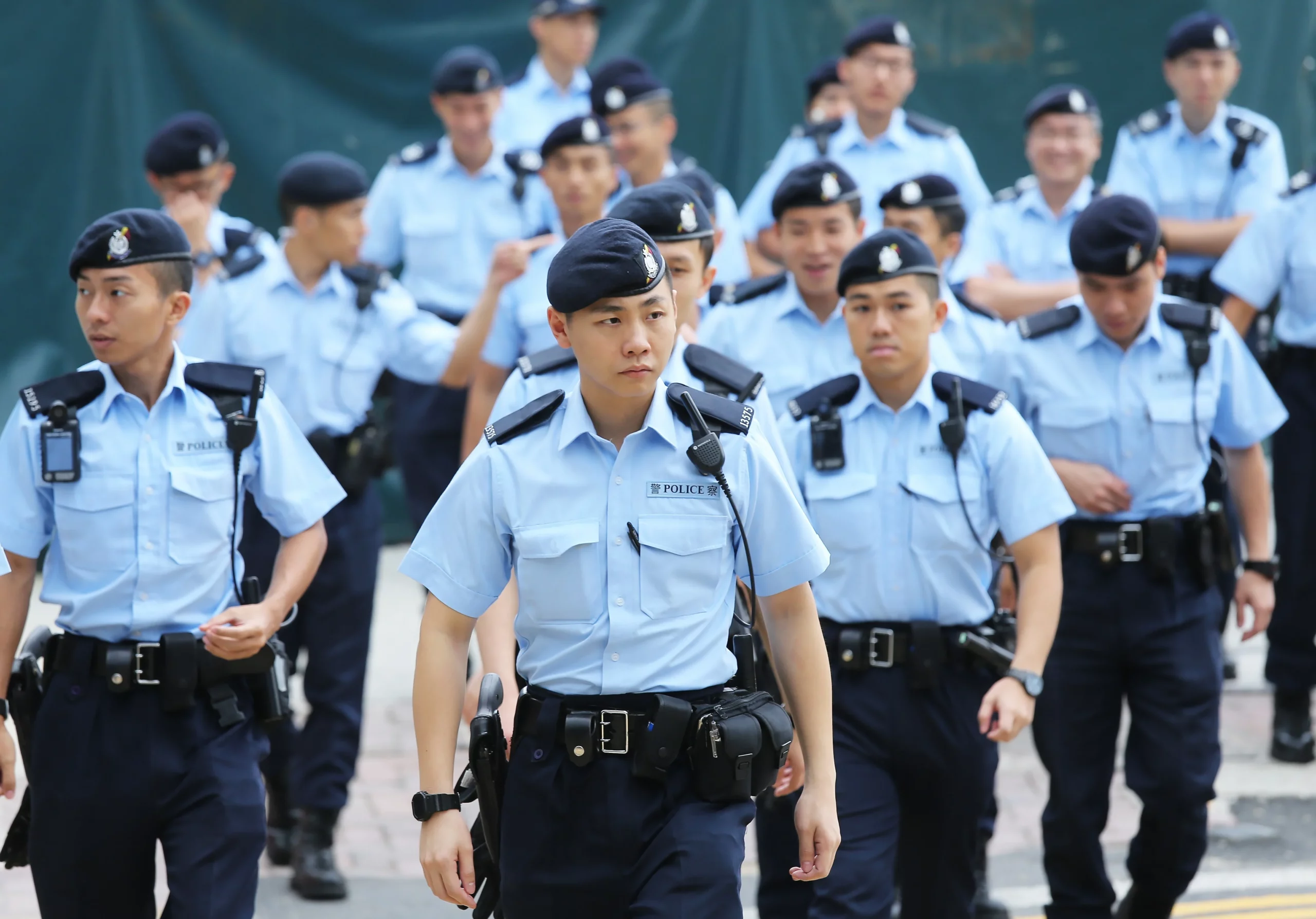Hong Kong labour activist Joe Wong, who had sought permission for a Labour Day procession, suddenly withdrew his request from the police after a brief disappearance, marking a sudden change in plans.
The specifics behind his change in perspective remain undisclosed, a consequence of a confidentiality clause embedded in the comprehensive national security legislation that Beijing introduced in 2020 to suppress dissent in Hong Kong.
Activists are claiming that three years after the law’s enactment, Hong Kong’s police have increased surveillance efforts. This involves dissuading rallies before permit applications, conducting home visits in anticipation of politically sensitive dates, and summoning organisers for advisory meetings.
‘It’s impossible to organise any large-scale rally and march now,’ fellow labour unionist Denny To told AFP. ‘It’s certainly a process of taming.’
The efforts to stifle perceived dissent in Hong Kong appear to reach far beyond the realm of traditional opposition parties like the League of Social Democrats.
Groups like a women’s association and even a Cantonese language preservation organization have been impacted. Just last month, police conducted a search at the founder’s residence and requested the removal of a fictional essay illustrating a dystopian vision of Hong Kong’s future.
Read also: Popularity Of Coups Means Democracy Failing In Africa – GEJ
‘It appears the striking range has expanded,’ said Chan Po-ying, leader of the League of Social Democrats.
Some say that police visits have become regular happenings, as per to seven activists who spoke with AFP.
Due to the nature and clause of confidentiality by the law, insights into the police discussion cannot be further disclosed.
‘The impacts are invisible,’ said To.
Replying to the questions about new strategies employed by the national security department, Hong Kong police told AFP they ‘take appropriate actions… according to the laws’.
Hong Kong, a semi-autonomous region with greater freedoms than mainland China, used to boast a thriving civil society.
It played a crucial role in fortifying the massive and occasionally tumultuous pro-democracy protest movement of 2019.
Since Beijing’s action to quell dissent, with thousands arrested, the streets of Hong Kong have seen no protesters.
Even events such as International Women’s Day marches have been shelved.
Initially, the Hong Kong Women Workers’ Association had scheduled their first post-pandemic rally for March 8, and their application for it had been approved. However, they decided to withdraw their application after three days.
The association is disallowed to say what led to the withdrawal due to the national security law’s confidentiality clause.
Police told reporters safety could not be guaranteed at the march after they saw comments online suggesting the event be “hijacked”.
Four members of the League of Social Democrats were warned not to join the march “for our own good”, Chan told a radio programme at the time.

